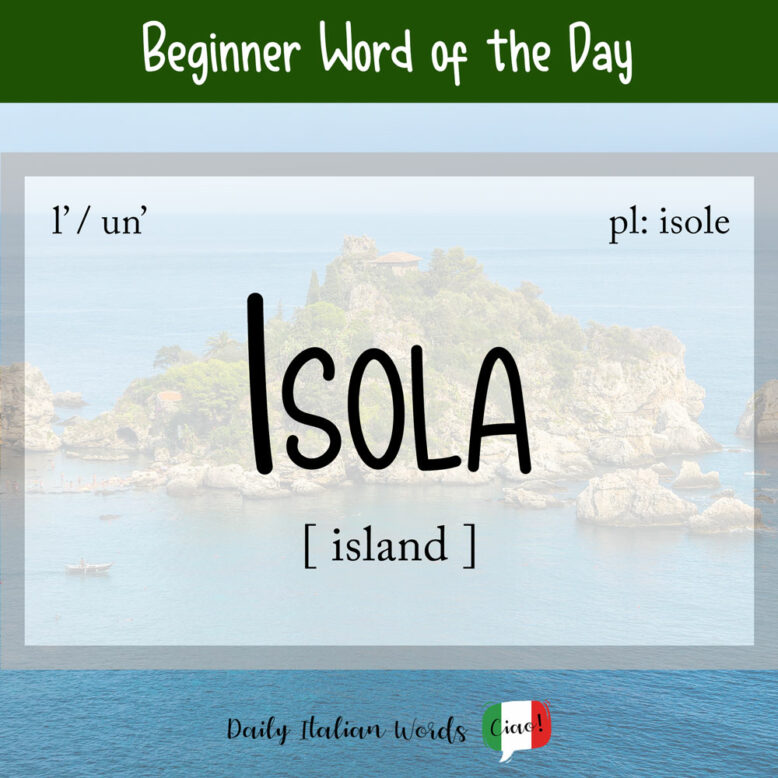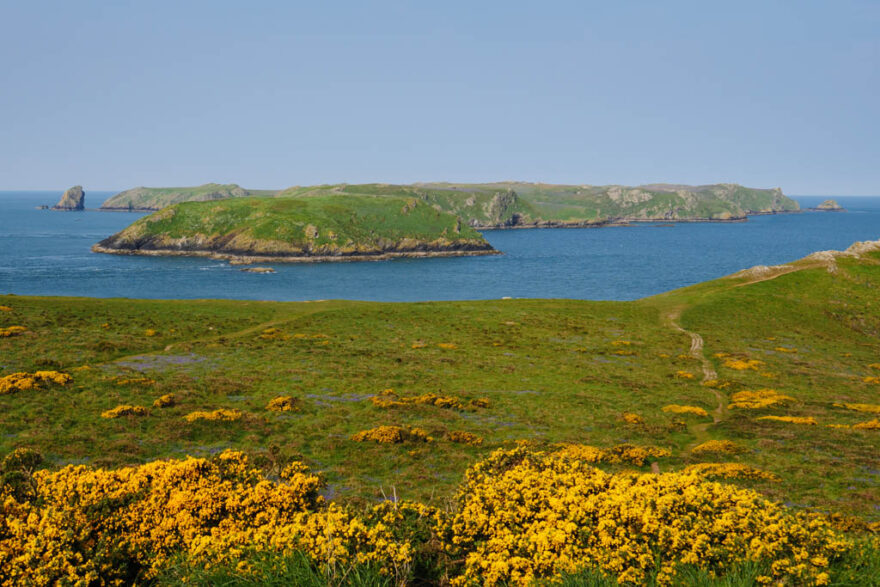An island – or isola (feminine, plural: isole) in Italian – can be formed in three different ways. The first is when continental plates (placche continentali) collide and push land up above the ocean’s surface. The second is when underwater volcanoes (vulcani sottomarini) continuously erupt in one area, causing land to form. The third is through deposits of sand (depositi di sabbia) generated from erosion.

Italy itself isn’t an isola but it is surrounded by dozens of them, some of the most famous being Sicilia, Sardegna, Ischia and Capri. Stromboli is a small island containing one of only three active volcanoes in Italy.
Io abito sull’Isola d’Ischia da cinquant’anni.
I’ve lived on Ischia Island for fifty years.
The noun isola is closely related to the verb isolare which means to isolate, which is essentially what an island is – an isolated body of land surrounded by water.
Mi sento molto isolato su questa isola deserta.
I feel very isolated on this desert island.

A person who lives on an island can be called an islander or isolano in Italian.
Gli isolani sono molto orgogliosi della loro storia e cultura.
The islanders are very proud of their history and culture.
In addition to area or zona pedonale, Italians also use the expression isola pedonale (lit: pedestrian island) to describe an area of a city that is accessible only to pedestrians.
An isola ecologica, on the other hand, is another word for centro di raccolta (recycling depot).
Heather Broster is a graduate with honours in linguistics from the University of Western Ontario. She is an aspiring polyglot, proficient in English and Italian, as well as Japanese, Welsh, and French to varying degrees of fluency. Originally from Toronto, Heather has resided in various countries, notably Italy for a period of six years. Her primary focus lies in the fields of language acquisition, education, and bilingual instruction.


